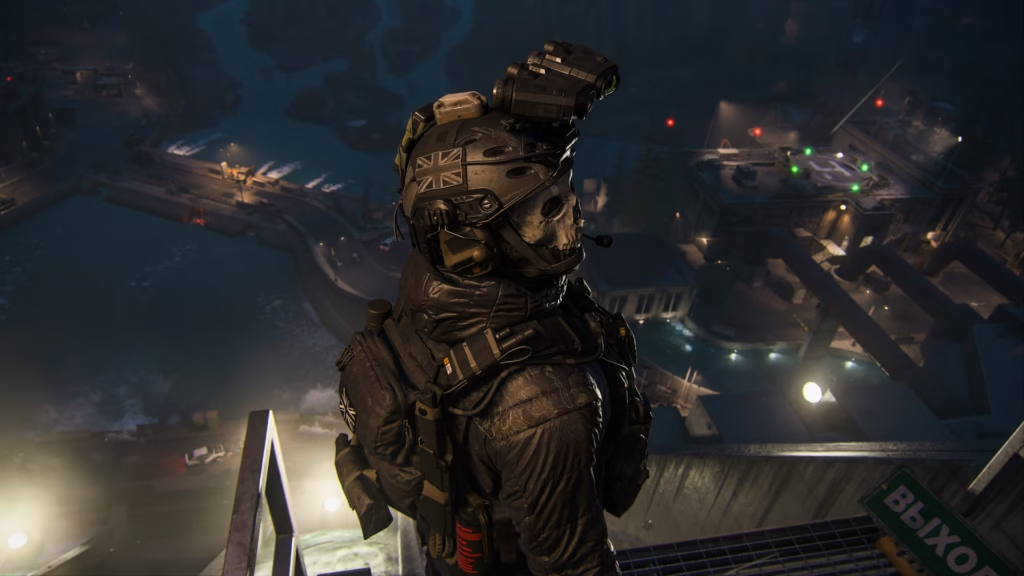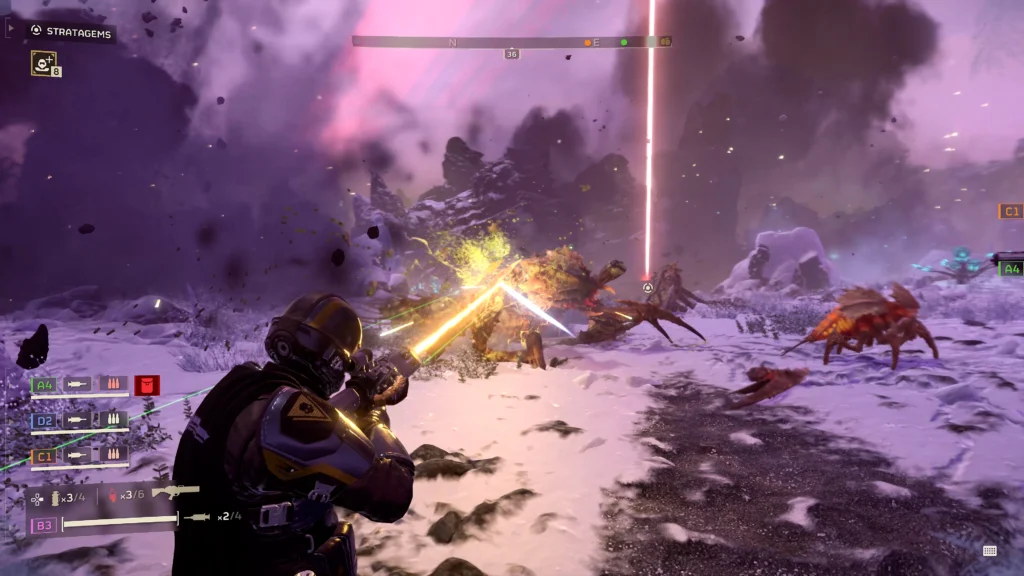Introduction to Helldivers 2 and Call of Duty MW3
Helldivers 2 and Call of Duty MW3 are two prominent entries in the first-person shooter (FPS) genre, each catering to distinct player preferences and styles. Helldivers 2, the sequel to the original Helldivers, is a cooperative shooter that emphasizes teamwork, strategy, and player skill. Set in a satirical sci-fi universe, the game challenges players to embark on dangerous missions where efficient coordination is crucial to overcoming overwhelming odds. The gameplay mechanics promote communication, as players must work together to execute tactical maneuvers while facing off against various alien species.
On the other hand, Call of Duty MW3 is an installment in the iconic Call of Duty franchise, renowned for its fast-paced combat and cinematic narrative. While MW3 incorporates strategic gameplay elements, it also embeds a degree of randomness that can significantly influence match outcomes. The game features a blend of single-player campaigns and multiplayer modes, appealing to players who appreciate both solo challenges and competitive environments. Call of Duty MW3’s gameplay mechanics emphasize quick reflexes, adaptability, and expertise with various weapons, fulfilling the desires of those who favor fast-paced action.
This comparison seeks to delve into how Helldivers 2 and Call of Duty MW3 engage players through different approaches to skill application and randomness. Players who thrive on precision and communication are likely to find a satisfying experience in Helldivers 2, where strategic execution often outweighs individual prowess. In contrast, Call of Duty MW3 may attract those who enjoy dynamic gameplay where the unpredictability of each match can lead to dramatic shifts in power and control.

Skill-Based Gameplay in Helldivers 2
Helldivers 2 is a unique entry in the cooperative shooter genre, differentiating itself through its emphasis on skill-based gameplay mechanics. At the core of this experience is the necessity for teamwork and strategic planning. Players must effectively coordinate with their teammates to conquer the game’s challenging missions, which often require precise execution of tactics to succeed. This coordination enhances the overall skill level of each player, as they depend not only on their own abilities but also on how well they can collaborate and communicate with others.
One of the defining features that encourages skillful gameplay in Helldivers 2 is its cooperative mechanics. Players are often faced with formidable adversaries that present a significant challenge. In order to overcome these obstacles, teams must share responsibilities, making use of each class’s unique abilities effectively. This necessitates clear communication among team members, with players trading information about enemy positions, health status, and tactical adjustments to strategies during the heat of battle. Such dynamics reinforce the notion that successful gameplay is contingent upon player cooperation rather than individual prowess alone.
Moreover, Helldivers 2 employs a gameplay design that rewards meticulous planning and execution. Players are incentivized to master their skills through various in-game tasks that require a blend of precision shooting, agile movement, and support roles. As players progress, they unlock advanced equipment and strategies which allow for customization of play styles to suit different approaches. This progression further solidifies the game’s focus on skill, as only dedicated players who invest time to understand these intricacies will fully reap its benefits.
In essence, Helldivers 2 fosters an environment where skill-based gameplay is paramount, promoting a rewarding experience for players who are willing to engage deeply with its cooperative mechanics and strategic challenges.
Randomness and its Impact: Call of Duty MW3
Call of Duty: Modern Warfare 3 (MW3) has long been recognized as a competitive shooter that combines fast-paced gameplay with strategic depth. However, the introduction of elements of randomness can significantly influence matches, often impacting the outcomes in ways that skill alone cannot control. In MW3, random occurrences—from bullet spawns to unforeseen environmental interactions—add layers of unpredictability that can shape the course of competitive encounters.
The role of luck in MW3 is particularly pronounced during high-stakes matches. Players may find themselves in situations where a bullet lands unexpectedly, or an enemy appears unexpectedly due to a random spawn point. These occurrences can dramatically alter the trajectory of a game, placing even the most skilled players at a disadvantage when fortune does not favor them. This unpredictability can foster a sense of frustration among players who have dedicated significant time to honing their skills, only to be thwarted by randomness.
Moreover, while player skill remains a crucial factor in achieving success within MW3, the balance (or imbalance) introduced by these random elements can overshadow individual performance. Players may execute a flawless strategy, but a sudden random event—such as an errant grenade or a last-minute respawn—can derail their efforts. This factor creates a dynamic where matches may be decided as much by the whims of chance as by tactical acumen. Consequently, the competitive ecosystem may feel skewed, rewarding not only proficiency but also fortunate circumstances.
The coexistence of skill and randomness in MW3 raises questions about fairness and the integrity of competitive play. While some players may argue that these elements enhance the thrill of battle, others contend that they detract from the meritocratic nature of gaming. Ultimately, understanding the impact of randomness in Call of Duty MW3 is essential for players seeking to navigate both the challenges and opportunities presented by the game’s unique gameplay environment.

Conclusion: Finding Balance in Shooter Games
In comparing Helldivers 2 and Call of Duty MW3, it becomes apparent that both titles embody distinct philosophies regarding the interplay of skill and randomness in shooter games. Helldivers 2 notably emphasizes skill, requiring players to master mechanics and strategize effectively to achieve success. The game rewards those who invest time in honing their abilities and understanding the nuances of gameplay. This design caters to a demographic that thrives on competitive play and seeks fulfillment in skill-based challenges.
Conversely, Call of Duty MW3 presents a landscape where randomness can influence the outcome of engagements significantly. Elements such as luck in weapon spawns, environmental factors, or unpredictable match dynamics often dictate player experiences, occasionally overshadowing individual skill. This randomness can appeal to a broader audience, offering quick gameplay and accessible fun for casual players who may not possess the time or inclination to develop advanced techniques.
Both gameplay styles have their merits, appealing to varying player psychologies. Those who relish the satisfaction of mastering a system may gravitate towards Helldivers 2, whereas individuals seeking fast-paced excitement with less emphasis on precision may favor Call of Duty MW3. The divergence in design philosophies raises questions about the future trajectory of shooter games: will developers continue to prioritize skill-based mechanics, providing deeper, more rewarding experiences, or will they maintain a balance that incorporates randomness, attracting a wider player base?
Ultimately, the evolution of shooter games will likely depend on the community’s response and demand for specific gameplay experiences. As the genre progresses, it will be fascinating to observe how developers navigate this balance, shaping the future of gaming for both competitive and casual players alike.

